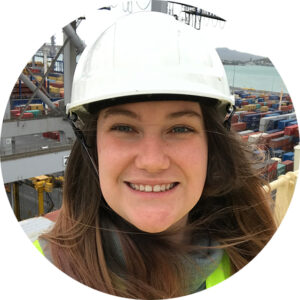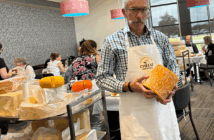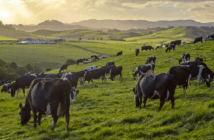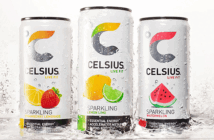
Kathryn Esler
Straight off the back of a double degree majoring in supply chain management and Mandarin, Kathryn Esler landed a spot on Nestlé’s supply chain graduate programme, before quickly becoming operations and logistics manager at Nestlé NZ. She’s now accepted a role as supply chain manager for Farah’s, but before she left she spoke with HotSource about her passion for all things logistics.
HS: How did you arrive at your current role? What was the grad programme like and how did you get involved?
KE: I began with Nestlé Australia as a supply chain graduate in 2016 and progressed to the role of operations and logistics manager at Nestlé New Zealand.
I found my grad programme through the GradConnect website, bright-eyed and bushy-tailed, straight from a double degree majoring in supply chain management and Mandarin. I participated in their Top100 Grad Awards, and as a result of being the Top Supply Chain Grad for 2015, I was given the opportunity to join Nestlé. My grad programme was a two-year end-to-end supply chain programme, covering the four key pillars of supply chain: procurement, customer service, planning, and physical logistics. I worked across a broad number of supply chain projects focusing on building my skills, knowledge, and networks.
The best opportunities in my grad program were being able to meet a diverse range of people, with different experiences from all over the business. This helped me develop my foundational knowledge in many supply chain areas. Having this network of amazing specialists allowed me to get involved in many aspects of the business and expedite my development.
I actively looked for opportunities and found myself heading across the ditch to New Zealand. In my current role as the operations and logistics manager, I manage the strategic and operational direction of Nestlé New Zealand’s physical logistics network.
Why did you want to work in this industry?
Funnily enough, I decided to study supply chain after I had completed my first-year marketing, accounting, and economics classes, and had found no joy in any of them. I picked up SCM as a hesitant guess. I have always loved understanding how things work, forming networks, and studying theoretical knowledge with a physical application, and I figured as an essential worldwide shared service such as SCM was a safe bet for a career path.
I was very fortunate to find out early on in my studies that I had a passion for supply chain. What first made me love supply chain was its connection to the world. Everything I had ever had or learned, or taken part in, somehow got to me through the magic wonders of a supply chain. I liked the idea of being part of an industry fundamental to business success, but until recently, not considered its own field. In an area as far-reaching and complicated as the supply chain, there is always something to keep you interested.
What’s something you get to do in your day-to-day tasks that you’re passionate about?
I am passionate about creating the greenest possible supply chain we can. The world’s supply chains are full of wondrous feats and capabilities, but most of these come at the expense of the environment. Supply chain professionals have the unique ability to create a sustainable solution that is larger than one individual contribution, creating a sustainable supply chain solution that is good for our people, our communities, and our planet.
Keeping sustainability at the forefront of your mind in everything you do yields amazing results. Some amazing projects I have been involved in with Nestle are zero-waste to landfill, reducing virgin plastic/cardboard use, and regenerating industrial land.
What’s the most pressing issue facing the industry right now and how do you see if affecting the future of food and beverage?
I wish there was only one. There are many new realities that supply chain professionals are facing. Extensive multi-vessel port congestion, skyrocketing demand, and even higher container rates, scarcity of raw goods, economic headwinds, reduced capacities, and challenges in our forward view, or rather lack of.
I see the most pressing issues being the effects of the last two years of supply chain turbulence on the decisions FMCG companies are making around sourcing, servicing, and storing products. The food and beverage companies that come out on top will be the ones with a resilient, flexible distribution network that was able to conquer the Covid odds and deliver on customer-centricity. I think coming out of Covid, we will see a big focus on health and wellness and by extension responsible supply chains. This could manifest itself in localising procurement, repatriating manufacturing, utilising more fourth-party logistics, co-manufacturing facilities, and an increase in distribution automation.




























































































